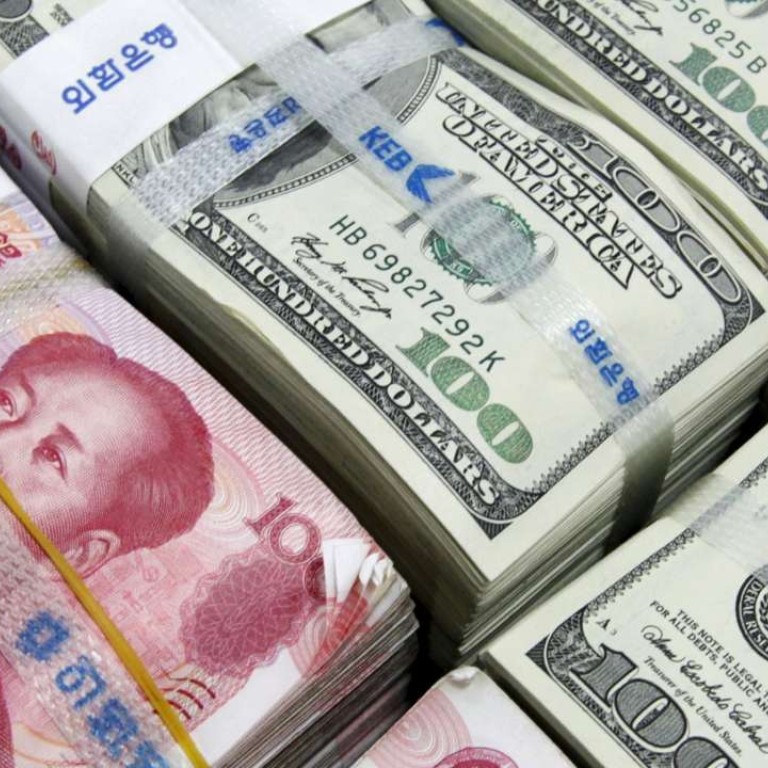
Yuan drops to fresh six-year low but analysts confident PBOC will avoid drastic adjustments
Central bank sets yuan reference point at 6.7098 to the US dollar, 90 basis points or 0.13 per cent lower than Monday
The Chinese yuan continued to depreciate on Tuesday, after the central bank weakened the reference rate to a fresh six-year low.
Onshore yuan in Shanghai was trading at 6.7121 against the US dollar, 0.11 per cent or 73 basis points weaker than on Monday to refresh its weakest level since September 2010. Offshore yuan also dipped 0.08 per cent or 62 pips to 6.7211 against the greenback, approaching the low level in January of 6.75 per dollar.
The falls came after the People’s Bank of China continued to set the yuan reference point weaker on Tuesday, at 6.7098 against the US dollar, down 90 basis points or 0.13 per cent than on Monday, a new six-year low.
The pound continued its fall, too, after a sudden drop of 6.1 per cent last Friday. One pound bought US$1.2310 by 9.55 am, down 0.38 per cent or 48 points. The Japanese yen also weakened against the greenback, to 103.88 per dollar, down 0.28 per cent.
China’s economy is still on a reflationary path, but the recent tightening of restrictions on housing purchases could raise market concerns over its sustainability
Analysts at China International Capital Corporation (CICC) said in a note that as interest rate rise fears continue and other currencies such as sterling keep falling, a further strengthening of the US dollar could put pressure on the yuan.
“China’s economy is still on a reflationary path, but the recent tightening of restrictions on housing purchases could raise market concerns over its sustainability,” they said.
“Exchange rate instability, as a source of policy uncertainty, would further discourage investment and consumption.”
CICC said the central bank “should and probably will” avoid drastic adjustments of the Chinese currency in the fourth quarter of this year, and such interventions would drag foreign exchange reserves down further.
“We expect the yuan to stay largely stable amid short-term pressures,” CICC said.
China’s foreign reserves declined US$18.8 billion in September, hitting their lowest level since May 2011, data last week showed.
The PBOC signalled intensified capital outflows after the G20 Summit and sparked speculation it might have intervened to support exchange rate last month.

